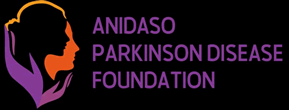Parkinson’s disease (PD) is generally thought of as a disease that only involves movement. But in addition to motor symptoms such as slowness of movement, tremor, stiffness and postural instability, most people develop other health problems related to Parkinson's. These symptoms are diverse and collectively known as non-motor symptoms.
While family and friends may not be able to see these symptoms, it is important to realize that non-motor symptoms are common and can be more troublesome and disabling than motor symptoms. Some symptoms, such as loss of smell, constipation, depression and REM sleep behavior disorder can occur years before the diagnosis of PD.
Non-motor symptoms can include:
Cognitive changes: problems with attention, planning, language, memory or even dementia
Constipation
Early satiety: feeling of fullness after eating small amounts
Excessive sweating, often when wearing off medications
Fatigue
Increase in dandruff (seborrheic dermatitis)
Hallucinations and delusions
Lightheadedness (orthostatic hypotension): drop in blood pressure when standing
Loss of sense of smell or taste
Mood disorders, such as depression, anxiety, apathy and irritability
Pain
Sexual problems, such as erectile dysfunction
Sleep disorders, such as insomnia, excessive daytime sleepiness (EDS), REM sleep behavior disorder (RBD), vivid dreams, Restless Legs Syndrome (RLS)
Urinary urgency, frequency and incontinence
Vision problems, especially when attempting to read items up close
Weight loss

